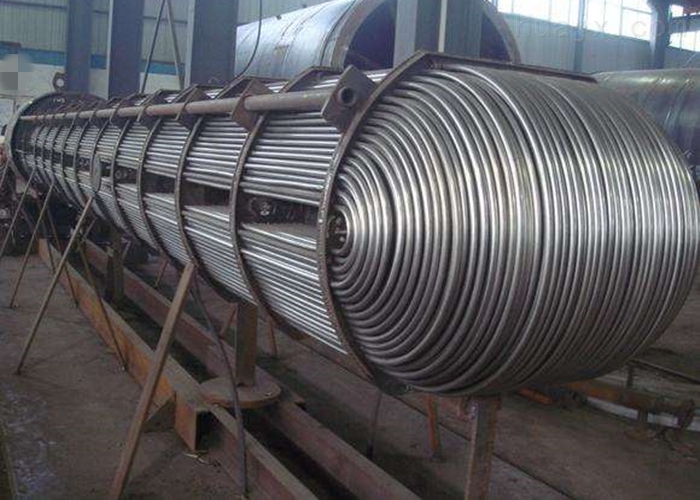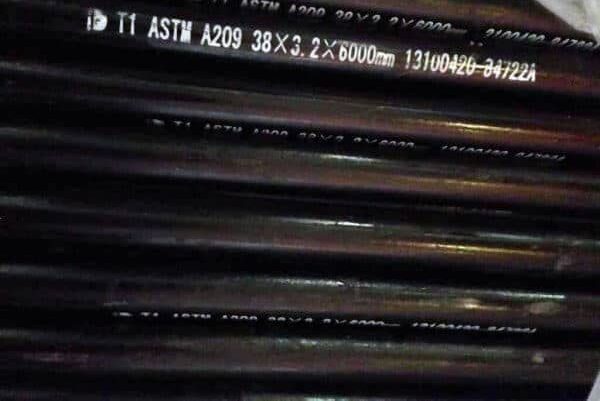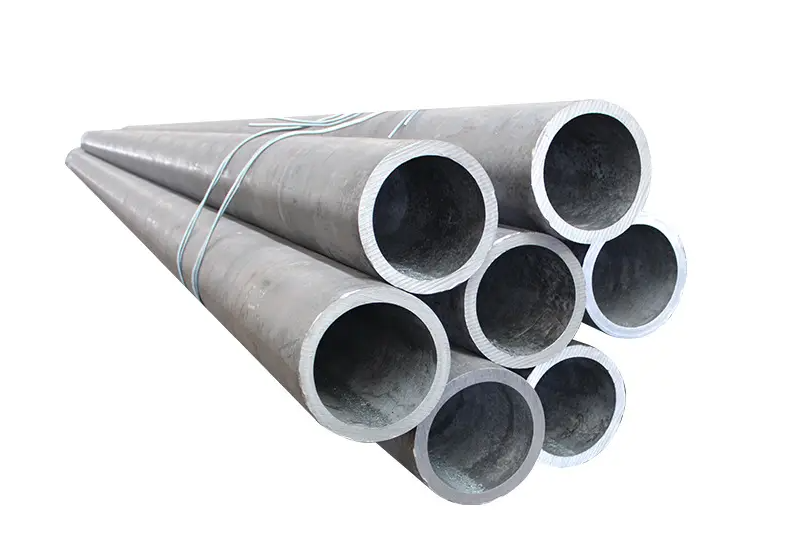A209 Alloy Steel Boiler Superheater Pipe

ASTM A209 Alloy Steel Boiler Superheater Pipe
Introduction
ASTM A209 is a specification for seamless carbon-molybdenum alloy-steel boiler and superheater tubes. These pipes are designed specifically for high-temperature service in boilers and superheaters, where they are subjected to elevated temperatures and pressures. The alloy composition, particularly the addition of molybdenum, enhances the strength and creep resistance of the steel, making it suitable for these demanding applications. The specification covers various grades, with Grade T1 and T1a being the most common.
Alloy steel pipes under ASTM A209 are vital components in power plants and industrial boilers, ensuring efficient steam generation and heat transfer. Their ability to withstand high temperatures and pressures without deforming or failing is crucial for the safety and efficiency of the systems in which they are used.
Specifications
Scope
ASTM A209 covers several grades of seamless carbon-molybdenum alloy-steel tubes intended for use in high-temperature service, particularly in boilers and superheaters. These tubes are designed to operate at elevated temperatures and pressures, where their enhanced mechanical properties and resistance to oxidation and corrosion are essential.
Chemical Composition
The chemical composition of ASTM A209 alloy steel tubes is carefully controlled to ensure optimal performance under high-temperature conditions. The typical chemical composition for Grade T1 and T1a includes:
- Carbon (C): 0.050-0.150%
- Manganese (Mn): 0.300-0.800%
- Phosphorus (P): 0.025% max
- Sulfur (S): 0.025% max
- Silicon (Si): 0.100-0.500%
- Molybdenum (Mo): 0.440-0.650%
Mechanical Properties
Mechanical properties of ASTM A209 alloy steel tubes ensure they can withstand the stresses and strains of high-temperature service. These properties typically include:
- Tensile Strength: Minimum 415 MPa (60 ksi)
- Yield Strength: Minimum 205 MPa (30 ksi)
- Elongation: Minimum 30% in 2 inches
- Hardness: The tubes should not exceed a maximum hardness of 79 HRB for Grade T1 and 85 HRB for Grade T1a.
Schedule
ASTM A209 tubes are available in various schedules, which denote the wall thickness of the pipes. Common schedules include:
- Schedule 40: Standard wall thickness
- Schedule 80: Extra strong wall thickness
- Schedule 160: Double extra strong wall thickness
The choice of schedule depends on the specific application requirements, including operating pressure and temperature.
Technical Details, Dimensions, and Tolerances
Dimensions
The dimensions of ASTM A209 tubes are specified by their outside diameter (OD) and wall thickness. The standard sizes range from 1/8 inch to 5 inches in outside diameter. Common dimensions include:
- Outside Diameter (OD): 1/8 inch to 5 inches
- Wall Thickness: Specified according to the schedule, ranging from 0.035 inches (Schedule 5) to 0.500 inches (Schedule 160).

Tolerances
ASTM A209 specifies precise tolerances to ensure the tubes meet stringent quality and performance standards. These tolerances include:
- Outside Diameter (OD): ±0.1% of the specified OD
- Wall Thickness: ±10% of the specified wall thickness
- Length: Tubes are typically supplied in random lengths of 5-12 meters, with a tolerance of ±50 mm.
Wall Thickness & Tolerance
The wall thickness of ASTM A209 tubes is critical for their performance in high-temperature applications. Tolerances on wall thickness are essential to ensure consistent performance. The standard tolerances include:
- Wall Thickness Tolerance: ±10% of the specified wall thickness.
- Minimum Wall Thickness: The minimum wall thickness must not be less than 87.5% of the specified nominal wall thickness.
Materials and Manufacture
Materials
ASTM A209 tubes are made from carbon-molybdenum alloy steel, specifically designed to withstand high temperatures and pressures. The addition of molybdenum enhances the steel’s strength, creep resistance, and overall performance in high-temperature environments.
Manufacture
The manufacturing process for ASTM A209 tubes involves several steps to ensure the highest quality and performance:
- Seamless Tube Production: The tubes are produced using a seamless process, typically involving extrusion or rotary piercing, followed by hot rolling.
- Cold Finishing: After hot rolling, the tubes may undergo cold finishing processes such as cold drawing or cold pilgering to achieve the desired dimensions and surface finish.
- Heat Treatment: The tubes are subjected to heat treatment to refine their microstructure and enhance their mechanical properties. Typical heat treatments include normalizing, quenching, and tempering, depending on the specific requirements.
Tests
To ensure the quality and performance of ASTM A209 tubes, several tests are conducted:
Hydrostatic Test
A hydrostatic test is performed to verify the tubes’ ability to withstand internal pressure. The tubes are filled with water and pressurized to a specified level, typically 1.5 times the design pressure, to check for leaks and structural integrity.
Nondestructive Testing (NDT)
Nondestructive testing methods are used to detect internal and surface defects without damaging the tubes. Common NDT methods include:
- Ultrasonic Testing: High-frequency sound waves are used to detect internal flaws.
- Eddy Current Testing: Electromagnetic induction is used to detect surface defects.
- Radiographic Testing: X-rays or gamma rays are used to inspect the internal structure.
Mechanical Tests
Mechanical tests are conducted to verify the tubes’ mechanical properties, including:
- Tensile Test: Measures tensile strength, yield strength, and elongation.
- Hardness Test: Verifies hardness levels to ensure compliance with specified limits.
- Flattening Test: Checks the tube’s ability to withstand deformation without cracking.
Heat Treatment
Heat treatment is a critical step in the manufacturing process of ASTM A209 tubes. The specific heat treatment process depends on the grade and intended application:
Normalizing
Normalizing involves heating the tubes to a specific temperature (usually above the critical temperature) and then allowing them to cool in air. This process refines the grain structure and improves mechanical properties.
Quenching and Tempering
Quenching involves rapidly cooling the tubes from a high temperature (usually above the critical temperature) by immersing them in water or oil. This process hardens the steel. Tempering follows quenching and involves heating the tubes to a lower temperature to reduce brittleness and improve ductility.
Stress Relieving
Stress relieving involves heating the tubes to a temperature lower than the critical temperature and then cooling them slowly. This process relieves internal stresses caused by manufacturing processes such as cold working.







